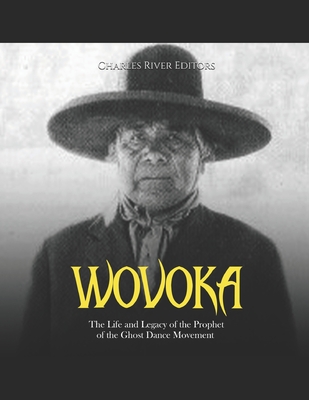*Includes pictures *Includes online resources for further reading Wovoka (1867-1932), the Ghost Dance Prophet, was a member of the Walker River band of Paiutes, in western Nevada. The Walker River Reservation was established in 1859 and was Wokova's home off and on for years. Wovoka was also known as Jack Wilson, a name he acquired while he was, for some years, employed on the David Wilson family ranch in the Mason Valley. At that time in Nevada, Indians not living on a reservation often lived on a ranch. Wovoka was exposed to the pious Wilson family's daily Bible readings, and that may have helped shape his own beliefs. His father was a traditional medicine man, himself a devotee of an earlier prophet. In 1889, Wovoka followed his father in also becoming a medicine man. The year, Wovoka had a series of visions that led to what is sometimes called the Ghost Dance religion, which spread like wildfire across much of the West in 1889 and 1890. "Paiute" is the common term for a number of bands who call themselves the Numu, which simply means "The People." Some tribal history is relevant to his story. There are historically three main groupings of the Paiute peoples: the Northern, the Southern and the bands in the Owens Valley. The languages of these three groups are not mutually intelligible. The various groups inhabited primarily the Great Basin region, including most of Nevada, western Utah, parts of eastern and northeastern California, and parts of Idaho, Oregon and Arizona. Wovoka was a Southern Paiute. The Numu peoples were hunter gatherers, living on game such as rabbits, fish from rivers and lakes, and a variety of bulbs, berries, plants and nuts, particularly pinon nuts from the pinon pines. The populations were small, widely scattered and the environment was harsh. Once neighboring peoples acquired horses, some of the Paiute bands were subject to slave raids by the Utes, who sold captives to Hispanics in the Southwest and Mexico (Hanes & Hillstrom). All three groups of Paiutes were adversely affected by settlement in the 1850s and 1860s. The American invasion of the Great Basin and the West began almost immediately after the Mexican War. The Gold Rush in California in 1849 quickly brought 200,000 outsiders to California, which became a state in 1850. Mormon settlement in Utah and the surrounding region developed before the Mexican War, from the 1840s, and the wagon trains on the Oregon Trail, also starting before the War, greatly increased. The differ










